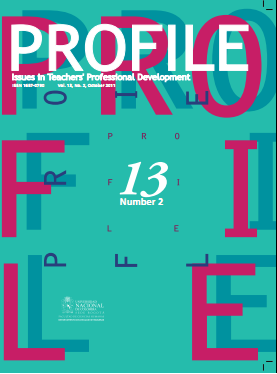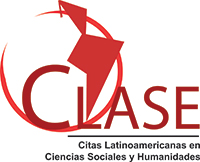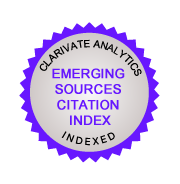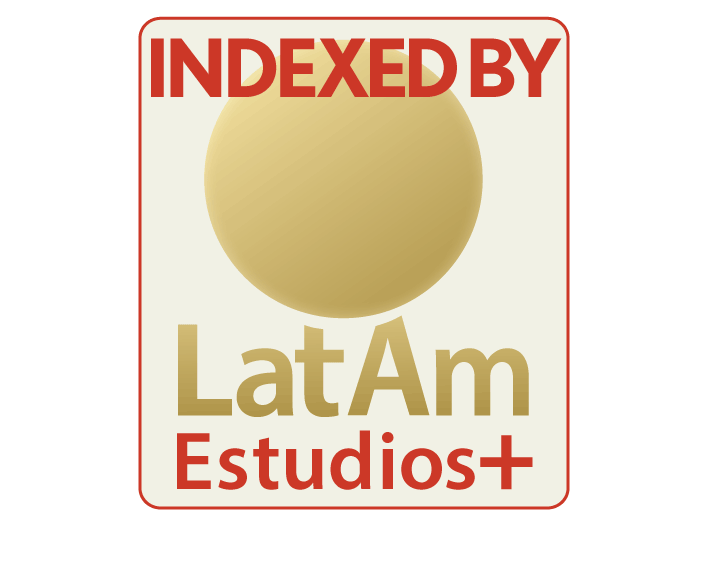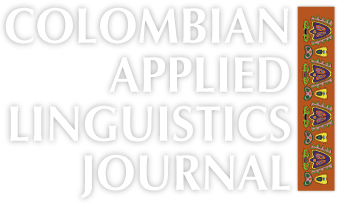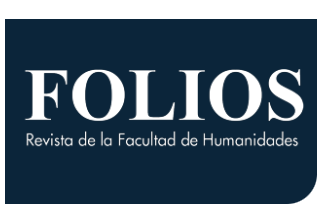Understanding and Facing Discipline-Related Challenges in the English as a Foreign Language Classroom at Public Schools
Comprensión y tratamiento de los retos asociados a la disciplina en el aula de lengua extranjera en escuelas públicas
Keywords:
Action research projects, class disruption, classroom management, discipline problems, English as a foreign language (en)Dominio de grupo, indisciplina, inglés como lengua extranjera, problemas de disciplina, proyectos de investigación acción (es)
Complying with school regulations and teachers' instructions is a basic principle of an excellent class; both novice and experienced teachers face challenging situations when getting into real classrooms, especially those related to classroom management. There are various reasons that explain discipline problems in public schools, as well as varied strategies beginning teachers create and try when coping with those challenges. This article reports an action research study on how this methodology helped a group of teacher-trainees overcome indiscipline in English as a foreign language classrooms at public schools, and align with professional development initiatives which focus on reflection and decision-making processes that the new Colombian policies demand from new teachers seeking a higher quality of education.
Tanto los profesores novatos como los experimentados enfrentan situaciones problemáticas en las aulas de clase reales, especialmente en relación con la disciplina. Hay varias razones que explican la indisciplina en los colegios públicos y también estrategias variadas que los profesores principiantes crean y ensayan para superar tal reto. Este artículo reporta un estudio de investigación acción que ayudó a un grupo de profesores principiantes a superar la indisciplina en el aula de inglés en colegios públicos y a responder a iniciativas de desarrollo profesional con base en procesos de reflexión y toma de decisiones que las nuevas políticas educativas colombianas demandan de las nuevas generaciones de profesores para mejorar la calidad de la educación.
Understanding and Facing Discipline-Related Challenges in the
English as a Foreign Language Classroom at Public Schools
Comprensión y tratamiento de los retos asociados a la disciplina en el aula
de lengua extranjera en escuelas públicas
Josefina Quintero Corzo
Universidad de Caldas, Colombia
josefina.quintero@ucaldas.edu.co
Odilia Ramírez Contreras
Universidad de Caldas & Institución Educativa Atanasio Girardot, Colombia
odiliarc@yahoo.com
This article was received on August 6, 2010, and accepted on June 13, 2011.
Complying with school regulations and teachers' instructions is a basic principle of an excellent class; both novice and experienced teachers face challenging situations when getting into real classrooms, especially those related to classroom management. There are various reasons that explain discipline problems in public schools, as well as varied strategies beginning teachers create and try when coping with those challenges. This article reports an action research study on how this methodology helped a group of teacher-trainees overcome indiscipline in English as a foreign language classrooms at public schools, and align with professional development initiatives which focus on reflection and decision-making processes that the new Colombian policies demand from new teachers seeking a higher quality of education.
Key words: Action research projects, class disruption, classroom management, discipline problems, English as a foreign language.
Responder a las normas escolares y a las instrucciones de los profesores es un principio básico de una clase excelente. Tanto los profesores novatos como los experimentados enfrentan situaciones problemáticas en las aulas de clase reales, especialmente en relación con la disciplina. Hay varias razones que explican la indisciplina en los colegios públicos y también estrategias variadas que los profesores principiantes crean y ensayan para superar tal reto. Este artículo reporta un estudio de investigación acción que ayudó a un grupo de profesores principiantes a superar la indisciplina en el aula de inglés en colegios públicos y a responder a iniciativas de desarrollo profesional con base en procesos de reflexión y toma de decisiones que las nuevas políticas educativas colombianas demandan de las nuevas generaciones de profesores para mejorar la calidad de la educación.
Palabras clave: dominio de grupo, indisciplina, inglés como lengua extranjera, problemas de disciplina, proyectos de investigación acción.
Introduction
Teacher education (TE) programs comprise a wide range of aspects that determine the personal and professional development of young generations of teachers. TE programs at Caldas University have in mind the real needs and problems teacher trainees face when getting into real classrooms; that is why the university has adopted important curriculum reforms (Universidad de Caldas, 2009-2018) to provide teacher trainees with strategies that equip them with the methodological tools and research skills to solve immediate problems concerning their pedagogical practicum1.
Most Colombian public schools are open to research (Quintero, Buitrago, Gallego, Infante, López & Zuluaga, 2007). A large number of innovative proposals have emerged from educational settings. According to Sánchez (2011), "it is worth reflecting upon the preparation that teacher education programs are providing since adjustments could be made in order to enhance this preparation and avoid potential problems and frustration on the part of student-teachers or novice teachers" (p. 7).
However, the applicability of research processes is limited by different factors. Some go from administrative to pedagogical constraints such as lack of stimuli, traditional teacher-centered models based on instrumental procedures, a content-based curriculum, lack of time, crowded classrooms, scarcity of didactic materials and technological resources, and changing policies (Ministerio de Educación Nacional [MEN], 2008).
Despite the constraints mentioned above, there has been some research that looks at and explores the classroom phenomena. In that vein, this research proposal intends to describe the reasons that explain discipline problems (e.g. class disruption) in public schools and varied strategies beginning teachers try when coping with those discipline problems. The following sections give an account of how five modern languages teacher trainees put into practice their research skills to lessen the levels of indiscipline in the English classroom, giving a great value to their reflective processes. Action research helped them to cope with indiscipline in the classroom based on the cycle approach of observing, questioning, decision-making, planning, acting, reflecting, and documenting (Kemmis & McTaggart, 1995).
The article starts with a brief literature review on issues dealing with teachers' role in classroom management; it proceeds with the statement of the problem area, the research questions, and a short description of the real context of Colombian public schools. Then, the research methodology is described with its data collection and analysis techniques and instruments; finally, findings and conclusions are presented under the scope of the research questions previously posed.
Literature Review
Classroom management is frequently referred to as the number one challenge student teachers face in their classrooms and "having control of the class is one of the concerns that characterizes novice teachers" (Pineda & Frodden, 2008, p. 148). Prada and Zuleta (2005, p. 168) refer to classroom management, too, and highlight the fact that most novice teachers are extremely concerned about the way they exert control in the class. According to Fontana (1997), "the feeling of insecurity to keep class control in a thirty-student group turns threatening in the minds of most novice and experienced teachers. Children, considered a mass, could offer a threatening -even intimidating-image" (p. 16).
Kyriacou (2000, p. 22) links students to frequent sources of stress among teachers; when listing the top ten reasons why teachers get stressed, the author starts with "teaching pupils who lack motivation" and "maintaining discipline". Thus, teachers find it difficult to encourage students who do not see the school setting as an interesting place to learn; these students do not necessarily misbehave, they just do not do their best, thus demanding more time and effort on the part of the teacher to accomplish their tasks. Referring to this kind of students, Kyriacou further states:
They [the students] will take every opportunity to work at as slow a pace as possible, they will be unresponsive when asked questions, they will lack the initiative to do anything other than what they are explicitly told to do, they will take every opportunity to engage in social conversation, and they are quite happy to hand in work that is incomplete and unfinished (p. 23).
Kyriacou insists that when teachers are challenged to cope with unmotivated classes their journey feels harder due to the "physical and emotional tiredness at the end of a school day" (2000, p. 23). The lack of interest or motivation lead learners to get engaged in activities different from what they are instructed like chatting, playing, walking around, sleeping, throwing paper balls, or littering. What starts with simple indicators of lack of motivation frequently ends up shaping discipline problems; at this point, teachers are stressfully called for different actions that Kyriacou refers to as follows:
Alertness and vigilance [...] to prevent pupil misbehavior occurring in the first place. This means that, with some classes, a teacher feels they can never relax. They continually need to be on the alert for a sign that there is a problem which if not dealt with quickly could lead to misbehavior (p. 24).
This means that teachers need to pay very close attention to everyday class moves to identify those that may seriously disrupt the class; for example, "trivial incidents, such as not paying attention [...] or serious incidents such as pupil swearing" (Kyriacou, 2000, p. 25) require immediate actions to keep the control of the classroom and the calm atmosphere that the teaching-learning process demands. In this sense, Duarte and Jurado, (2008) consider: "Pedagogical processes are an essential part of school life and they ought to be thought out by people who work in education, in order to create proper environments for students' integral development and the construction of a more civilized society" (p. 62).
Teachers need to take into account the differences among learners considering age, sex, aptitudes and socioeconomic and cultural background. Fontana (1997) further explains how these five factors represent the basis for the interpretation of students' conduct:
Table 1. Differences among Learners (According to Fontana, 1997)

Continuing with Fontana's rationale, students, when growing up, change their expectations about and patterns of interaction with teachers and adults, becoming more critical and, sometimes, blaming them for their own mistakes or failures. They are also affected by their concern or need for a good reputation and prestige among their peers, although sometimes they find it difficult to ask for help among colleagues because as Pineda and Frodden (2008) state, "novice teachers usually feel that their problems are unique and tend to try to solve problems on their own" (p. 154). Concerning their aptitudes, Fontana (1997) states that teachers need to plan their teaching according to the students' aptitudes in order to avoid frustration; levels of difficulty on task should match students' learning differences and pace. The author also reminds teachers to avoid any kind of discrimination in the classroom because of sex differences, but also to understand the changes proper to puberty and adolescence. Concerning socioeconomic and cultural background, Fontana also highlights that a classroom is a place where varied views of the world merge and, depending on the teacher's moves, those views may sometimes alter the learning atmosphere.
Disruptive behavior as one of the most common discipline problems is one of the main concerns for student teachers. Sureda (1989) reports that "the lack of discipline in the classroom is a common factor around the world: what makes the difference is the teacher's capability to maintain classroom management" (p. 3). In fact, teacher trainees "can sometimes be overwhelmed by a feeling of panic when faced by an unruly class whom they feel they cannot control" (Kyriacou, 2000, p. 36). The author also refers to disruptive behavior as a source of stress for both experienced and inexperienced teachers. Inexperienced teachers "become worried about the brutalizing effects on their personality of becoming strict disciplinarians" (p. 37) since the ways to display authority most of the time imply feeling uncomfortable and rude.
McDaniel (1986) comments on a humanistic view of discipline where "discipline is related to self-concept and communication" (p. 63). This idea explains why classroom management is so demanding for new teachers. The author reports how research has shown that "certain teaching techniques lead to better learning and better behavior. Teachers must master these techniques, the researchers say, if they hope to have well-managed and effective classrooms" (p. 63). This means that classroom behavior depends on or is determined by teaching (i.e. by the kind of strategies teachers implement to work on both academic and disciplinary issues at the same time). In his ten principles for classroom discipline, McDaniel (1986) suggests class procedures and patterns of interaction to raise and maintain students' motivation, interest, and desire to learn.
Ramírez (2004) elaborated on discipline problems when referring to disrespect in the classroom. She found that "students demanded more rules, actions, and intervention from the authority figures in the classroom" (p. 139). This means that students are frequently aware of the consequences of their moves in the class, but they also expect to be disciplined by their teachers or parents. Ramírez emphasizes that students expect teachers "to take immediate disciplinary actions based on the school code in order to make them be aware that their role also implies the observance of an authority system they agreed with when entering the school" (p. 139).
Although classroom management and discipline issues are related to both pedagogical and academic aspects in the teaching learning process, it is true that those issues lead teachers to transformations in their classrooms, and as Piñeros and Quintero (2006) state, "the implementation of transformations by teachers is not free from despair and pain since teachers need to abandon the comfort of readymade answers and recipes in teacher in order to explore the far-possible of risking their own selves both as people and professionals" (p. 185), especially at early stages in their teaching career. Additionally, Sánchez (2011) argues that:
Classroom management may be a tricky topic to describe. It certainly cannot be mastered by reading about it, and it encompasses diverse elements such as discipline, teacher's roles, class size, time management or cheating. When student-teachers start their practicum and their experiences are discussed as part of methodology courses, it is surprising to notice that this is the most challenging part of their performance. (p. 7)
The present study focuses on the views and actions teacher trainees take on the basis of reflection in action (Kemmis & McTaggart, 1995) when interacting with challenging classrooms in public school settings in Colombia. As we know, this demands high levels of transforming initiatives.
The Problem
A wide area of research among scholars in the educational field is the experiences and challenges teacher trainees encounter in the beginning of their professional lives; discipline issues top lists of complaints, worries, and concerns among teachers and administrators in public settings (Ramírez, 2004; Duarte & Jurado, 2008; Sánchez, 2011). That is why the present study was conducted, aiming at the following research questions:
- How do EFL (English as a Foreign Language) teacher trainees understand and explain discipline-related challenges in public school classrooms?
- How do EFL teacher trainees characterize discipline problems in public schools?
- What kind of strategies do teacher trainees use when they encounter discipline problems in the EFL class?
- What impact does action research have on the treatment of discipline problems in EFL public school classes?
Context
A typical public classroom in Colombia holds an average of 45 students; most classes last 50 minutes, and in some cases, classes are extended to 90 minutes, to be taken once or twice a week. Students stay in the same classroom the whole day and teachers travel around the school building according to stated class schedules. A regular classroom is composed of a set of chairs, a teacher's desk and a board. Teaching materials are scarce and the existing ones are not always accessible or available due to their location, normally away from the classrooms. Teacher-trainees generally identify different constraints and learning problems in their daily school life ranging from students' lack of attention, hyperactivity disorder, misbehavior, dyslexia, stress, lack of parental support, and low socioeconomic resources. Teacher-trainees make big efforts to balance their disciplinary and academic moves in the classrooms.
"Even though, classroom management has surely been a source of concern for many generations of teachers. It is a recent subject of discussion among LT [language teaching] authors" (Sánchez, 2011, p. 7). The research problem related to discipline challenges in the EFL classroom was identified by means of the follow-up procedures conducted by the practicum advisors in the Modern Languages Program. In Caldas University, advisory is provided on a weekly basis in trainee-advisor conferences in which they discuss lesson planning and assess the implementation of such plans; the pre-service program starts in the third year of the undergraduate program when student-teachers start observing classes in real settings and establish communication with their future head teachers; the program continues with two semesters of practicum in which the trainees shadow and substitute for their head teachers in their classrooms and become part of the school life as regular members of the school community. During these stages, observations, journals, interviews, transcripts, and evaluation forms reported that classroom management was the most important concern of advisors, teacher trainees, head teachers, and administrators. This problem consisted of a lack of teaching methodological strategies on the part of novice teachers to solve immediate problems related to discipline. Table 2 contains a summary of the reasons for discipline problems from the teacher trainees' perspective, as identified in the data collected.
Table 2. Reasons for Indiscipline in EFL Classes According to Teacher Trainees

Methodology
The present study was conducted following an action research methodology, taking into consideration that the teacher trainees involved implemented research proposals aimed at problems dealing with discipline-related issues, which were intervened on a cyclical basis (Kemmis & McTaggart, 1995). Data collection techniques such as observations, interviews, journals, focus groups, video/audio taping, transcriptions and documentary analysis were applied (Spradley, 1980). The researchers played their roles as nonparticipant observers both in the practicum process and the advisory committees in the Modern Languages and Master's in English Didactics programs at Caldas University.
The population involved in the study corresponded to five teacher trainees, ages ranging from 21 to 25; as part of the requirements for graduation, they conducted action research projects at public schools in urban areas that serve low social stratum neighborhoods. These trainees went through a complete research preparation process before they started their practicum. They got a view of their settings by means of preliminary observations to state a diagnosis of possible intervention points. As teacher trainees, they shadowed head teachers for a while and got involved in school life reporting to assignments as regular teachers. Complying with the chosen methodology, data were collected in six cycles in each trainee's research project by means of different techniques: six classes per trainee were observed, five journals and 30 class-assessment forms were analyzed; the five head teachers were interviewed as well as the advisors and trainees themselves; informal talks and documentary analysis of their field notes were also conducted. The researchers completed observation forms and transcribed the lessons and interviews.
Data were submitted for categorization in which codes were used to identify relevant issues emerging from the class phenomena described in the instruments. The identified categories/themes were used to characterize classroom phenomena according to the research questions and objectives presented in the preceding sections. Quintero et al., (2007), following Spradley (1980), describe the process of data analysis as segmentation, coding, categorization and theme identification. Ryan & Bernard (2000) refer to a similar process with the term identifying themes.
The student population the teacher trainees dealt with corresponded to seventh and eighth graders with a high percentage belonging to dysfunctional or disintegrated families. The students' ages ranged from 12 to 16 years old. They come from single or no-parent families and they belong to a low social stratum.
Findings
The findings from this study were classified into three different and at the same time related issues. In the first place, the follow-up and analysis of data from the participants and their teaching experiences built an interpretation of classroom settings. In the second place, the insights and reflections helped the researchers characterize indiscipline in public schools; and thirdly, important and useful strategies were operationalized in order to provide EFL teachers with tools to understand and face the daily discipline-related challenges in the classroom. Such findings are presented below.
An Interpretation of Classroom Settings
Categories were built based on the pieces of data that were segmented and coded according to the relationships they stated. These data reported two particular views of the classroom from the perspective of teacher trainees. First, the classroom is a place full of life, experiences, and stories to discover; it is an opportunity to explore and try new things every day. The teachers', administrators' and students' testimonies in interviews and focus groups provided evidence that what is perceived as noisy and disruptive by people outside the classroom might be a real learning environment where the students have the chance to express themselves and fulfill learning activities. Public school classrooms are seen as a difficult world because of the many everyday situations that arise in a class period, situations that involve complaints, arguments, varying emotions, confusion, conversation, and playing. This flow of human experiences challenges teachers to make on-the-go decisions that deal with both pedagogical and non-pedagogical issues. Second, that picture of a classroom suggests that the classroom is anything else but a place to learn. In general, trainees reported their feeling that students attend school with only the purpose of socializing with peers, to make friends, to enjoy life. That is why the teacher trainees felt that it was a challenge for them to transform the classroom from a peer-meeting spot into a place where students learn with the guidance from a teacher. The comments presented below taken from the trainees' journals and the interview transcripts reflect the teachers' concerns about the situations they face in their classes when they try to teach learners who are not interested in the class:
The class was a chaos.
I did not have a single moment to teach in an orderly manner.
Students always make teachers feel bad and sad.
The most common is mess, confusion, lack of attention.
While I am trying to teach the class, the students are always talking, laughing, yawning...
Very frequently, the students ask questions that have nothing to do with the class with the only purpose of interrupting and bothering me.
As shown in their comments, the trainees described how one of the most challenging roles of teachers in public schools is getting students' attention. Words like chaos, mess, and disruption suggest a picture that by far distorts that of the ideal classroom. Indiscipline in the classroom is understood as any particular event in the classroom that prevents the teacher from completing the planned lesson. Most trainees complained that their enthusiasm and eagerness to learn and teach are cruelly smashed by sometimes minor, sometimes serious students' moves that hurt their self-esteem making them feel frustrated. The teacher trainees felt that due to their youth and inexperience, the students do not recognize them as an authority in the classroom; some of the comments they made in the interviews or wrote in their journals are presented below:
I don't know why they do that. They don't care about anything.
The students do not take advantage of what I can teach them.
They do not recognize the importance of my class.
They just laugh at me and ignore the efforts I make to help them learn.
I felt very bad because they do not see me as a real teacher.
These comments provided evidence of the teacher trainees' desperation and concern for the problems of indiscipline they faced in the classroom. The expressions used to talk about these class phenomena involved a high emotional load that led them to reflect on the actions to take to overcome such situations, which was the main contribution of the action research approach implemented in their research project. It was through reflection in action that the trainees got to turn the views of their classrooms into a more balanced teaching and learning interaction, in which they captured their students' attention and connected them to meaningful learning experiences that changed the interpretations that the school community used to make of their classes; at the same time, they reported that their learners became more aware of the role that the EFL class might have in their lives, going beyond the initial conception that it was only a site for socializing.
Characterization of Indiscipline
Reflective teacher trainees used different words and situations to describe what they interpreted as indiscipline; they referred to specific behaviors or features displayed by the students, e.g. hyperactive, restless, talkative, playful, aggressive, rebellious, violent, disobedient, liar, and snappy. Again, all these descriptors emphasize attitudes inside the classroom during the teaching learning process, and they sometimes show how desperate and concerned the trainees feel. Some of the trainees' written comments say the following:
That group is terrible! This is the noisiest group in school...
They get out of control very easily; whatever activity you do with them becomes a big mess; this group has driven me up of the wall.
On the other hand, trainees reported their concern about the different view of discipline from the perspective of administrators; they stated that they only focus on a few aspects related to social behavior, expecting children to be nice and respectful to others, to protect school property and to wear their uniform properly (without make-up or accessories). This concern reflected the fact that the classroom is somehow seen as a separate setting where teachers are assumed to have total control of discipline issues, for which most school policies do not have clear rules. Minor disruptive behaviors such as chatting or playing while in class have become part of the daily routine of the classroom, since no consequences follow due to the lack of time and staff to implement school code regulations in large classes. What most school handbooks state for the management of class discipline problems in public schools is to use a control book, generally called Observador del alumno (Student Record Book), in which teachers register the events that deal with class disruption; in this book, students and parents are supposed to sign and make commitments to improve on the recorded situation. Nevertheless, as mentioned before, the size of the groups, the lack of school staff to follow up on each case, and the school policies themselves make it difficult to discipline students. Some of the comments made by the trainees include the following:
The discipline coordinator is just a figure most students are afraid of; the students' behavior and attitudes change when classes are visited by him, and due to his heavy work load he does not have time to supervise classes.
Students almost laugh at me when I mention the 'observador del alumno'. They don't care about it.
John ignored me when I warn him that I would report him to the coordination office.
These comments give a sense of despair or discouragement that reflects the gap between the stated discipline policies and what really happens in the classroom. Concerning this aspect, trainees reported face-to-face dialogue more effective when trying to get changes in students' behavior. They also said that the more engaged they were in the language activities, the less discipline problems they would have. This fact leads to the more effective strategies described in the following section according to which it could be inferred that discipline problems are not only the students' responsibility; teachers trainees also reported their concern about not being able to meet the students' expectations in terms of teaching strategies; they said that they needed to try varied class activities to keep the kids engaged and motivated.
These findings match some teaching concerns in previous studies of authors like Duarte and Jurado (2008), Kyriacou (2000), McDaniel (1986), Pineda and Frodden (2008), Piñeros and Quintero (2006), Prada and Zuleta (2005), and Ramírez (2004), to mention just seven examples of research in the field. The observed classes where the teacher trainees conducted their research projects are not described as violent or malicious in terms of interaction. No sign of delinquent or abusive behavior was identified; what the data reported was frequent or permanent noise, lack of attention and interest, interruptions, all of them representing disruption that prevents teachers from accomplishing learning objectives in the way and within the time frame planned.
Strategies to Deal with Discipline Problems in the EFL Classroom
The most common questions among teacher trainees when dealing with discipline problems are: "What can I do to make them work?" and "How can I get their attention?" Always looking for the magic formula, teacher trainees reported a varied collection of actions in their attempts to make their classes better each day. The first one was direct talk with the involved students. This technique arose as a result of their frustration when failing to get their attention by means of the school handbook policies or guidelines. Most procedures or school regulations/guidelines take too long and the trainees felt that they needed immediate action to get immediate results. Talking to the students on a face-to-face basis provided better results since both trainees and students established a closer relationship in which they shared a sense of mutual support; some of their comments were as follows:
It was very difficult to get changes with the school rules in the handbook. I preferred to talk to the students and make them aware of the importance of the class for their future.
I warned the students several times and wrote different comments on their records, but they seemed not to care about anything. So I decided to talk to them and negotiate.
I noticed that the students preferred to talk to me instead to go to the office. They promised to improve and a good deal of students complied with them.
Along with the need for a smooth class atmosphere based on negotiated mutual support, the trainees highlighted the importance of lesson planning. Lessons should include different activities using attractive materials, drawings, games, songs; they claimed that the variety of activities determined the levels of attention they could get from the students. According to the trainees, a good lesson plan is expected to have a logical sequence and very clear instructions. Effective lessons should aim at the students' expectations, interests and needs which in most classes appear to be missing. The following is the list of the most highlighted strategies trainees proved to be effective:
- Giving clear explanations for given exercises.
- Making instructions clear and giving them before grouping students.
- Organizing lessons in a sequence so that students know the steps to follow.
- Keeping learners busy, always giving them something to do within the allotted time.
- Managing time wisely.
- Including and preparing attractive materials.
- Stating rules for class procedures and activities, emphasizing the consequences for breaking rules.
- Giving the students responsibilities.
- Changing activities frequently.
- Monitoring students walking around the classroom.
- Respecting differences among learners, always taking into account their background and learning paces and styles.
- Integrating language skills.
Conclusions and Implications for Reflection in Action
Teacher trainees referred to reflection as a time consuming activity, but they also found it rewarding. The whole practicum process is a cyclical reflection; the challenges a class with discipline problems poses demand a high level of reflection for which new teachers need to be prepared (Fontana, 1997). The trainees in this study gave a great value to the preparation action research provided them with; according to them, when conducting AR they are not reproducers of stated formulas but feel they are inquisitive and transformative in their own classrooms. The situations inexperienced teachers have to solve every day demand high levels of decision-making skills they get throughout their practicum.
Although teacher trainees get plenty of recommendations from advisors and head teachers, their suggestions do not always work due to the fact that every class context is different. That is why teacher trainees are asked for new strategies, building up their own teaching repertoire as a result of their reflective action. As suggested in the action research methodology (Kemmis & McTaggart, 1995), they get skillful in identifying problems, recording them in their diaries or journals, stating proposals for action, designing lesson plans to solve the situations that bother them, implementing those strategies and then observing the effects in the improvement of class objectives and procedures. That is the main contribution of action research in the teacher education process.
There are big differences between theory and real classroom practice. Some student teachers enter the profession as novice professionals in teaching, go through challenges that lead them to find a balance between what they learned from theorists in teaching and learning literature and what really happens when they deal with young learners.
Theory from regular methodology classes is not enough to understand classroom settings. The direct contact with real students is what most helps beginning teachers comprehend, try alternatives, and explain causes and effects in class phenomena. This implies a need for teacher education programs to prepare new teachers for those challenges providing them with skills to cope with the unexpected events that might arise in a classroom with discipline problems and also expose them to teaching as early as possible in the corresponding education program. The pedagogical foundation of teacher education needs to go beyond academic or disciplinary knowledge and explore psychological and social issues to foster classroom management skills that positively affect the teaching learning process.
The words discipline problems are a polysemic term. Depending on the perspective of the people involved in the teaching process, its meaning may vary. Teachers, administrators, and students usually have a different interpretation of discipline problems in the classroom, and in the same way, different ways to react to them due to the different circumstances they perform in their roles. For teachers, discipline deals with class control, management and active interaction; for administrators, discipline relates to quietness, good behavior and calm; for students, discipline connects with rules, instructions and policies. This varied interpretation of discipline implies the fact that, since it is mostly the teachers who work faceto-face with large classes, policy makers and school administrators need to provide teachers with consistency and support, stating clear guidelines that guarantee a smooth teaching atmosphere at all levels. Discipline is an issue that deserves attention and immediate actions in order to achieve the standards of quality the educational system aims at.
In most school settings the roles of the people involved in the educational process are determined by the system itself and, sometimes, by the subjects who recognize and accept particular hierarchies. New teachers are not always recognized as real teachers and in most settings they are given a lower status that the students misunderstand as lack of authority, as reported in this study when the trainees expressed their despair and concern when being ignored by the students in their own classrooms. This implies that teacher trainees must be given the status of regular teachers and be recognized as professionals who nurture schools with new pedagogical knowledge and trends with which they update the learning process inside the classroom; students must be instructed to welcome student teachers and see them as professionals with the same status as their regular teachers and not to waste their contributions to their setting and damage their self-esteem.
Differences among learners determine the characterization of classrooms with discipline problems; so do the different perceptions that the people involved in the educational process have of what might be a discipline problem. That is why there should be consistent policies according to which learners, parents, teachers, and administrators make decisions when participating in or assessing class phenomena.
Although good teaching depends on good planning, it is always an on-the-go decision making process. Teachers need to be prepared to pedagogically solve the academic and disciplinary problems that arise in their classrooms. Hence, it is mandatory that teachers build up a rich repertoire of possibilities to cope with situations that alter plans of action as well as to consider all kinds of moves: teaching strategies, classroom management techniques, psychological approaches, social standardized practices, cultural trends, and the like.
The investigative training prior to the teaching practicum in the Modern Languages program gives new teachers the scientific tools they need to solve daily problems in the classroom. With action research, beginning teachers acquire research habits that strengthen their professional profiles; they become good observers to describe their context, look at events reflectively and critically, make comments and express opinions about the current situation in the educational system, look for support when they need it and, at times, they themselves are a source of advice for head teachers and administrators and share their experiences with those who go along the same path.
Action research was reported and is suggested as a way to reflect and search for tentative solutions to discipline problems because it provides teachers with the opportunity to try and assess strategies to provide the students with better learning experiences to lessen behavioral or attitudinal problems. This contribution of action research results in more mature professionals, who contribute to the nation's progress.
Discipline problems are difficult to be absolutely solved; that is the reality of most public schools and the complaint of lot of public school teachers have. It is not fair for the community to expect perfect classroom management on the part of teacher trainees. Therefore, it is definitely a must that teacher education programs prepare them to be able to identify, manage and overcome classroom challenges with methodological and interpersonal skills that meet the expectations of 21st century students. What the school members should do is take advantage of the strengths and knowledge they bring to their classrooms and, with them, research the teaching learning process more so that all together can overcome limitations and provide students with better learning experiences.
1 The project reported here and its publication were approved by the Vicerectoría de Investigaciones y Postgrados whose main objective is the participation of students and professors in research projects, according to the institutional development policies.
References
Colombia, Universidad de Caldas. Plan de Desarrollo de la Universidad de Caldas 2009-2018 "Para el Desarrollo de la Región y el avance de la ciencia y la cultura". Retrieved from http://www.ucaldas.edu.co/foroPDI/PDI/docs/PLANDEDESARROLLO2009-2018UCALDAS.pdf
Colombia, Universidad de Caldas. (2008). Reglamento de práctica e investigación educativa de los programas de licenciatura. Manizales: Departamento de Estudios Educativos.
Colombia, Ministerio de Educación Nacional [MEN]. (2008). Bilingüismo una meta para la competitividad. Retrieved from http://www.mineducacion.gov.co/cvn/1665/article-120867.html
Colombia, Ministerio de Educación Nacional [MEN]. (2009). Ley de inclusión. Decreto 366. Por medio del cual se reglamenta la organización del servicio de apoyo pedagógico para la atención de los estudiantes con discapacidad y con capacidades o con talentos excepcionales en el marco de la educación inclusiva. Retrieved from http://www.cntv.org.co/cntv_bop/basedoc/decreto/2009/decreto_0366_2009.html
Duarte, J., & Jurado, J. C. (2008). Pedagogical processes and their school coexistence relationship. Revista Colombiana de Educación, 55, 62-81.
Fontana, D. (1997). La disciplina en el aula: gestión y control. Buenos Aires: Santillana.
Kemmis, S., & McTaggart, R. (1995). The action research planner. Victoria: Deakin University Press.
Kyriacou, C. (2000). Stressbusting for teachers. Cheltenham: Stanley Thornes Publishers, Ltd.
McDaniel, T. (1986). A primer on classroom discipline: Principles old and new. PHI Delta Kappan, 68(1), 63-67.
Pineda, D., & Frodden, C. (2008). The development of a Novice Teacher's autonomy in the context of EFL in Colombia. PROFILE, Issues in Teachers' Professional Development, 9, 143-162.
Piñeros, C., & Quintero, A. (2006). Conceptualizing as regards educational change and pedagogical knowledge: How novice teacher-researchers' proposals illustrate this relationship. PROFILE, Issues in Teachers' Professional Development, 7, 173-186.
Prada, L., & Zuleta, X. (2005). A group of student-teachers' experiences in their practicum. PROFILE, Issues in Teachers' Professional Development, 5, 157-170.
Quintero, J., Buitrago, S. H., Gallego, L. P., Infante, G. E., López, M. M., & Zuluaga, C. T. (2007). Formación científica inicial de educadores. Manizales: Coedition Colciencias & Centro Editorial Universidad de Caldas.
Ramírez, O. (2004). The value of respect on the basis of cooperative learning (Unpublished master's thesis). Universidad de Caldas, Manizales.
Ryan, G., & Bernard, H. R. (2000). Techniques to identify themes in qualitative data. Retrieved from http://www.analytictech.com/mb870/Readings/ryan-bernard_techniques_to_identify_themes_in.htm
Sánchez, A. C. (2011, April). The Importance of classroom management for novice language teachers. Conference presented at VII Encuentro de Universidades Formadoras de Licenciados en Idiomas. Medellín: Universidad de Antioquia, Colombia.
Spradley, J. P. (1980). Participant observation. New York, NY: Holt, Rinehart & Winston.
Sureda, R. (1989). La disciplina en el aula: Actividades para situaciones problemáticas. Buenos Aires: Landeira Ediciones.
About the Authors
Josefina Quintero Corzo, head professor and researcher at Universidad de Caldas, holds a PhD in Education and a BA in modern languages. She has published articles about interdisciplinary curriculum, qualitative research and classroom research. She is an evaluator of the Colombian National System of Science and Technology and director of a research group classified by Colciencias under category A1.
Odilia Ramírez Contreras, MA in English Didactics and BA in Modern Languages, is a research professor at Universidad de Caldas and the principal of Institución Educativa Atanasio Girardot, one of the public schools in the local project Manizales Ciudad Bilingue. She has taught foreign languages in the United States as a Fulbright and VIF exchange teacher and has been part of research groups in Universidad de Caldas. She is currently studying for a PhD in Education with concentrations in EFL and ESOL with Northcentral University, Arizona.
References
Colombia, Universidad de Caldas. Plan de Desarrollo de la Universidad de Caldas 2009-2018 "Para el Desarrollo de la Región y el avance de la ciencia y la cultura". Retrieved from http://www.ucaldas.edu.co/foroPDI/PDI/docs/PLANDEDESARROLLO2009-2018UCALDAS.pdf
Colombia, Universidad de Caldas. (2008). Reglamento de práctica e investigación educativa de los programas de licenciatura. Manizales: Departamento de Estudios Educativos.
Colombia, Ministerio de Educación Nacional [MEN]. (2008). Bilingüismo una meta para la competitividad. Retrieved from http://www.mineducacion.gov.co/cvn/1665/article-120867.html
Colombia, Ministerio de Educación Nacional [MEN]. (2009). Ley de inclusión. Decreto 366. Por medio del cual se reglamenta la organización del servicio de apoyo pedagógico para la atención de los estudiantes con discapacidad y con capacidades o con talentos excepcionales en el marco de la educación inclusiva. Retrieved from http://www.cntv.org.co/cntv_bop/basedoc/decreto/2009/decreto_0366_2009.html
Duarte, J., & Jurado, J. C. (2008). Pedagogical processes and their school coexistence relationship. Revista Colombiana de Educación, 55, 62-81.
Fontana, D. (1997). La disciplina en el aula: gestión y control. Buenos Aires: Santillana.
Kemmis, S., & McTaggart, R. (1995). The action research planner. Victoria: Deakin University Press.
Kyriacou, C. (2000). Stressbusting for teachers. Cheltenham: Stanley Thornes Publishers, Ltd.
McDaniel, T. (1986). A primer on classroom discipline: Principles old and new. PHI Delta Kappan, 68(1), 63-67.
Pineda, D., & Frodden, C. (2008). The development of a Novice Teacher's autonomy in the context of EFL in Colombia. PROFILE, Issues in Teachers' Professional Development, 9, 143-162.
Piñeros, C., & Quintero, A. (2006). Conceptualizing as regards educational change and pedagogical knowledge: How novice teacher-researchers' proposals illustrate this relationship. PROFILE, Issues in Teachers' Professional Development, 7, 173-186.
Prada, L., & Zuleta, X. (2005). A group of student-teachers' experiences in their practicum. PROFILE, Issues in Teachers' Professional Development, 5, 157-170.
Quintero, J., Buitrago, S. H., Gallego, L. P., Infante, G. E., López, M. M., & Zuluaga, C. T. (2007). Formación científica inicial de educadores. Manizales: Coedition Colciencias & Centro Editorial Universidad de Caldas.
Ramírez, O. (2004). The value of respect on the basis of cooperative learning (Unpublished master's thesis). Universidad de Caldas, Manizales.
Ryan, G., & Bernard, H. R. (2000). Techniques to identify themes in qualitative data. Retrieved from http://www.analytictech.com/mb870/Readings/ryan-bernard_techniques_to_identify_themes_in.htm
Sánchez, A. C. (2011, April). The Importance of classroom management for novice language teachers. Conference presented at VII Encuentro de Universidades Formadoras de Licenciados en Idiomas. Medellín: Universidad de Antioquia, Colombia.
Spradley, J. P. (1980). Participant observation. New York, NY: Holt, Rinehart & Winston.
Sureda, R. (1989). La disciplina en el aula: Actividades para situaciones problemáticas. Buenos Aires: Landeira Ediciones.
How to Cite
APA
ACM
ACS
ABNT
Chicago
Harvard
IEEE
MLA
Turabian
Vancouver
Download Citation
Article abstract page views
Downloads
License
Copyright (c) 2011 Josefina Quintero Corzo, Odilia Ramírez Contreras

This work is licensed under a Creative Commons Attribution-NonCommercial-NoDerivatives 4.0 International License.
You are authorized to copy and redistribute the material in any medium or format as long as you give appropriate credit to the authors of the articles and to Profile: Issues in Teachers' Professional Development as original source of publication. The use of the material for commercial purposes is not allowed. If you remix, transform, or build upon the material, you may not distribute the modified material.
Authors retain the intellectual property of their manuscripts with the following restriction: first publication is granted to Profile: Issues in Teachers' Professional Development.



